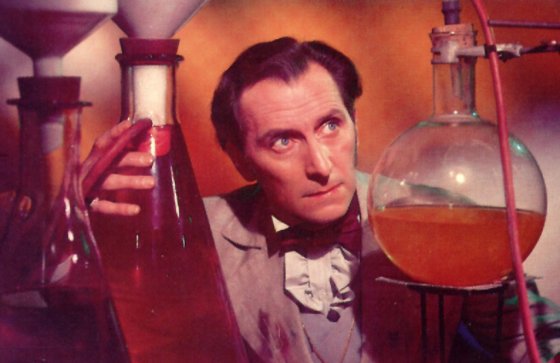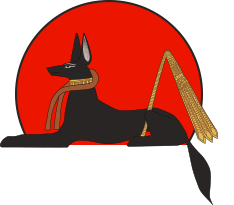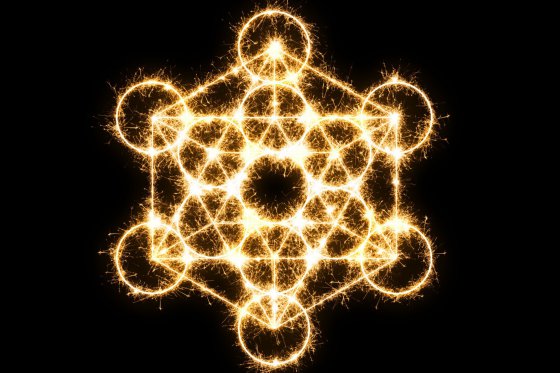When it comes to our most cherished beliefs, reason is often powerless. Thus, Occam’s razor, compelling us to select the hypothesis making the fewest assumptions, seems to have been far from the minds of those, who formulated the so-called many-worlds interpretation.
Presumably, they saw no other way around that which has been and continues to be such an embarrassment to the scientific community: the uncertainty principle and its implications. Given the impossibility of determining complementary properties such as the position and momentum of a particle for the same moment, it would seem that we determine these properties in determining the conditions of the experiment, leading to the conclusion of the universe being in an “undetermined” state, until we make the measurement, thus “collapsing” the wave function describing the possible outcomes.
Do we in fact create the universe, as we go along? No, says the many worlds interpretation, the whole universe simply (!) splits up, the observer subsequently merely finding himself in one of the new branches.
There is, however, a much simpler – although less palatable – solution to the problem of choosing the properties of the physical world by choosing the conditions of the experiment, being that no choice is actually made. This, in fact, has been demonstrated in an experiment showing that the experience of making a choice comes at a time, when the chosen action has already been initiated in the brain.
This, of course, goes to the very heart of the dispute between “idealists” and “materialists”, having been going on for more than two thousand years. Although disagreeing as to whether the “physical” or “psychological” aspect of reality is more fundamental, both camps subscribe to a dualism, which can of course not be upheld.
It really doesn’t matter, if the physical universe is seen as a function of the “soul”, or vice versa, as no causal relationship between the two can possibly be established, and consequently one of them has to go! One may object that the only possible choice has already been made, discarding the aforementioned soul.
But obviously, merely renaming it “psyche” or “consciousness” does not solve the problem. We still have the curious notion of something “immaterial” (since no one has ever seen a consciousness) interacting with the physical world.

In other words, a bold stroke is needed – perhaps even bolder than when Einstein dismissed the AETHER – and yet it seems strange that no one has made it, seeing that it resolves, or rather dissolves, all the problems associated with the nature of reality. Of course, it not only collides with the necessary illusion of the responsible citizen, much in the way that the Copernican system collided with medieval theology, but with the most “self-evident” of all dicta: the “I think therefore I am” of Descartes!
In fact, he wasn’t, and neither are “we”. In short: Not only is there no “free” will in the sense of not being determined by nature or nurture, there is no will at all, no choice, and no consciousness!
But how can this be? We may doubt our senses, or even the existence of a physical reality, but how can we doubt that we ourselves exist?
Nevertheless, for a moment consider this elusive property. Would we in any other case, except perhaps God – but then, obviously, we would already have left science far behind – have accepted the reality of something located (in the brain) but inaccessible to scientific inquiry?
After all, only the brain processes leading to behaviour can be studied, furthermore supplying a completely satisfying explanation in much the same way that the universe functions admirably without the intervention of the Almighty. Obviously, Will is an interpretation, and so is consciousness.
As has been demonstrated, when brain processes result in behaviour, we say that we act. But why then are we playing this odd game of hide-and-seek with ourselves?
For the same reason that society insists on it: When we became citizens, the jumble of neurological impulses had to manifest itself as a “personality”, which could be depended upon, and accordingly this is how we see each other and ourselves. But if “we” see ourselves in this way, must there not then be a “we” or “I”?
The answer is no. We may speak of justice being done as an expression of the workings of a judicial system, but that’s all it is: an expression.
If we insist on the independent existence of justice or consciousness, it’s because we’re sneaking the discarded concepts in through the backdoor. This is extremely difficult to understand, because such concepts are so deeply embedded in the way we perceive the world that they quickly achieve the status of common sense.
To someone insisting on a flat Earth, the “common sense” objection that people on the other side of the Earth would fall off, will be sufficient rebuttal, thus allowing him to remain in a world better suited to his needs. It won’t matter one whit, if I try to explain to him that his concept of up and down are part of his limited view.
But if “we” is merely an interpretation, as “justice” is of the physical courtroom, what is it then an interpretation of? The answer, of course, is: The physical world.
But doesn’t this interpretation in itself imply a dualism between the interpretation and what is interpreted? No, not really.
Since there is no consciousness, there can be nothing “psychological” as opposed to “physical”. Physical simply means sensory – what else could it mean?
There is no external world, simply because there is no internal world. There is only the world.
Science is basically empirical. It has to be, because once we go beyond what we can observe, anything goes.
This, however, also means that the science we know, or at least the popular conception of it, is not strictly science. The idea of a fundamentally unknowable external reality – Einstein’s closed watch – is metaphysical, not scientific.
At this point, the reader may be able to anticipate a new age of science. Not only having laid the “paradoxes” of mind and matter to rest, but embarking on a new kind of scientific endeavour, freed from the lingering ghosts of Christian fundamentalism.
So what is there really? There is the sense data and the sense we make of it, the observation and the theory (“we” being one of the theories).
An object is a theory. It is a way of correlating sense impressions that usually occur simultaneously.
This does not mean that there is a thing “out there”, in some mystical way corresponding to a “mental” image. It simply means that it is much easier to boil water, if the involved sensory impressions are interpreted as a kettle.
So it’s all an illusion? No, because that would imply that something in this sense was not – the observations and theories are real, because nothing is nor can be real in any other sense.
But then how can we possibly choose between them? The way we always have.
The kettle and its properties (being those that do not contribute to it being a thing) are real, because they can be relied upon. They may not stay the same, but they are nevertheless predictable, predictability – not some kind of super-physical substantiality – being the criterion of reality.
So nothing has really changed, apart from resolving a few old philosophical paradoxes, right? Wrong!
Because when we relinquish our prejudices about what has to be – God and external reality – and what cannot be, we redefine science. For a very long time now we have been stranded on an island of our own making, priding ourselves in the knowledge of having finally discovered the real world, everyone born before 1900 being a superstitious moron.
It did not matter that he was able to build cathedrals, while we produced canned food. Because there was only one way of ordering the universe, i.e. the one that corresponded with the universe, which had always been there, but which we had only recently discovered.
And thus our theory was a good one, even if it brought us to the edge of destruction, just as God was unquestionably good, no matter what disasters he visited upon his children. Thus, the end of truth may well prove to be the beginning of science.
HORROR AND SCIENCE FICTION IN THE CINEMA BEFORE 1980


